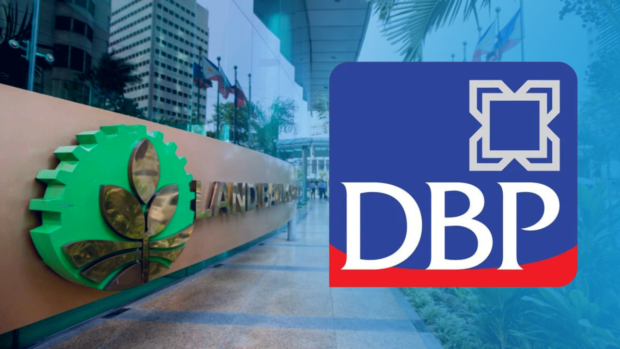DBP bucks merger with Landbank
MANILA, Philippines — The board and management of the Development Bank of the Philippines (DBP) are opposed to the planned merger of the bank with the Land Bank of the Philippines, underlining DBP’s mandate to support infrastructure development in the country and the possible negative impact of the union.
According to bank president Michael de Jesus, DBP’s mandate “significantly differs” from that of Landbank, which is expected to be the surviving entity being the bigger bank.
In a letter to DBP insiders, de Jesus added that the board and management have had to hold off talking about the matter with their employees as they were still carefully studying the rationale for the proposed merger with the other state-run bank.
“After gathering pertinent inputs, we were finally able to put forth our position countering the points raised in the draft proposal for the merger,” De Jesus said.
In a later statement, DBP also stressed that it was “a win” for both customers of Landbank and DBP to continue to operate separately.
“A giant sole player in the government sector does not leave stakeholders much choice. The merged identity may be driven at large to work for higher return on equity for the government,” the statement said.
De Jesus said the board and management were working “to sustain our relevance and responsiveness as the designated infrastructure bank” that supports the national government’s development agenda.
The DBP also warned that its merger with Landbank could send a wrong message to outside investors as the move could be interpreted “as a sign of instability or weakening of the banking system.”
Management priority
The eighth-largest bank in the country in terms of assets, DBP provides credit support to firms in four strategic sectors of the economy — infrastructure and logistics; micro, small and medium enterprises; the environment; and social services and community development.
“We understand everyone’s concern and unease that may have been prompted by this recent development, but as I have said, nothing is final and definitive at this time,” he said.
De Jesus added that while details of the proposed merger were still being threshed out and not yet final, the DBP leadership was not taking things sitting down. He assured the employees that their best interest was the management’s priority even as they hope for the best as things unfold.
“And as we are all in this together, we call on everyone to help fight misinformation regarding this matter,” De Jesus said. “We still do not know for certain if the proposed merger would progress further.”
Just last March 3, he said DBP was prepared to work with the national government to broaden financing to pivotal industries identified under the Philippine Development Plan 2023-2028.
In particular, De Jesus expressed full support to the government’s push for “servicification,” which targets high-growth industries such as information and communications technology, creatives, tourism, and logistics including technology startups that could spur employment generation.

